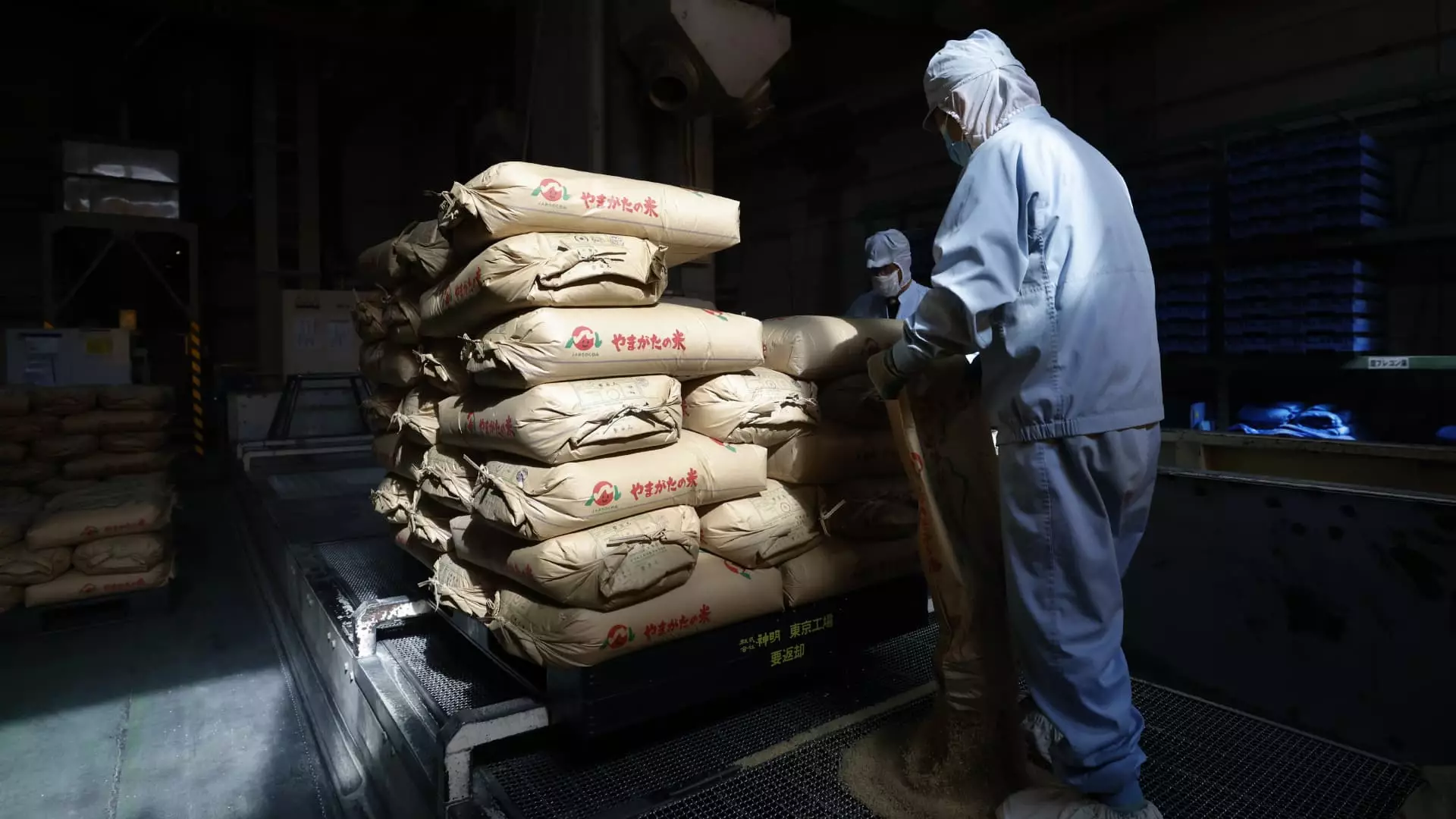In May, Japan experienced an alarming surge in rice prices, which skyrocketed by 101.7% compared to the previous year. This marked the largest increase in over fifty years, a staggering statistic that underscores the escalating economic disarray gripping the nation. Following closely behind were April’s rise of 98.4% and March’s 92.1%, forming a disturbing trend that suggests underlying issues in Japan’s economy are far from temporary or trivial. This dramatic escalation in the cost of rice, a staple in Japanese cuisine and culture, goes beyond the purely economic implications. It reverberates through social strata as families grapple with the rising cost of living, while policymakers struggle to keep pace with a volatile financial landscape.
Government Interventions and Inflation Dynamics
The Japanese government has resorted to releasing emergency stockpiles of rice, an action that illustrates the urgency surrounding this crisis. But while such measures may offer short-lived relief, they fail to address the root causes of inflation plaguing the country. Japan’s core inflation rate hit 3.7% in May, surpassing economists’ predictions and maintaining its alarming position above the Bank of Japan’s (BOJ) 2% target for a staggering 38 consecutive months. This is indicative of broader economic challenges that go beyond simple supply and demand arguments. As food prices—specifically, rice—exert a commanding influence over core inflation, the future trajectory of Japan’s economy seems precariously intertwined with agricultural fortunes. The growing dependence on one staple food exacerbates the precariousness of the economic landscape.
Societal Impact and Consumer Behavior
What often gets lost in conversations about economic metrics and inflation rates are the real-world implications for everyday individuals. As rice prices soar, families must make painful choices regarding their expenditures. Will they scale back on nutritional meals or push their children to accept a higher proportion of inexpensive processed foods? Consumer habits, once characterized by traditional culinary practices, may shift dramatically as families seek to mitigate financial strain. This cultural impact cannot be understated; food is not merely a commodity but an integral part of a nation’s identity. As rice becomes increasingly unaffordable, we may witness cultural repercussions that extend well beyond economic analyses.
The Role of Geopolitical Tensions
Adding to this complex scenario are the geopolitical tensions in the Middle East, which may strain energy prices and further complicate the Japanese economy. The intertwining of global events with local realities serves as a reminder that the economy doesn’t operate in a vacuum. The reliance on imported goods, alongside domestic price shocks, creates a dual threat for the average consumer and contributes to a pervasive sense of anxiety.
Central Bank Policies under Scrutiny
Despite the concerning inflation metrics, the BOJ remains committed to keeping interest rates at an all-time low of 0.5%. Yet, there is an underlying sentiment of skepticism regarding this strategy. Economic contractions, such as the recent 0.2% decline in GDP, signal potential stagnation that may require a reevaluation of current policies. In a wavering economy, the rhetoric of the BOJ officials sounds increasingly hollow, particularly when forecasts project continued sluggishness despite rising prices. This indicates a disconnection between policy ambitions and ground realities, leaving the public to ponder the efficacy of such monetary strategies.
Looking Ahead: A Precarious Future
Japan stands at a significant crossroads. The alarming rise in rice prices and the broader inflationary pressures underscore a growing instability that must be addressed with both urgency and sophistication. The measures currently implemented by the government reflect a reactive rather than proactive approach, and the necessity of comprehensive economic reform cannot be overstated. With consumer behaviors shifting under the strain of rising costs, and the socio-cultural fabric of Japan at risk, policymakers must take decisive action to reassess strategies and restore confidence in the nation’s economic future. No longer can the focus be solely on immediate price control; instead, a much more holistic view that encompasses societal well-being must be adopted.

Leave a Reply